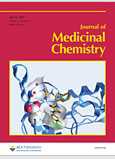Nature :中美成果或将改变疟疾防控方式
2013-06-26 王艳红 新华社
中美科学家合作取得的一项新成果可望彻底改变防控疟疾的方式:让蚊子感染一种特殊的细菌,从而具备抵抗疾病的能力,并能将这种能力传给后代。 以蚊制蚊 蚊子是疾病的理想载体,能直接将病原体注射到人的血液里,而且机动性强、繁殖迅速,能传播疟疾、登革热、乙型脑炎和西尼罗河热等等,其中对人类威胁最大的是疟疾。据世界卫生组织估计,全球约一半人口面临疟疾风险,2010年约有2.19亿疟疾病例,66万人死亡,大多
中美科学家合作取得的一项新成果可望彻底改变防控疟疾的方式:让蚊子感染一种特殊的细菌,从而具备抵抗疾病的能力,并能将这种能力传给后代。
以蚊制蚊
蚊子是疾病的理想载体,能直接将病原体注射到人的血液里,而且机动性强、繁殖迅速,能传播疟疾、登革热、乙型脑炎和西尼罗河热等等,其中对人类威胁最大的是疟疾。据世界卫生组织估计,全球约一半人口面临疟疾风险,2010年约有2.19亿疟疾病例,66万人死亡,大多数是非洲儿童。
目前普遍使用的控蚊方法是推广用杀虫剂处理过的蚊帐,并在室内喷洒杀虫剂,主要是拟除虫菊酯。这种杀虫剂便宜、长效、相对安全,但这些优点也意味着它会被滥用,容易催生蚊子的耐药性。
釜底抽薪的做法是从蚊子本身着手,培育特殊的蚊子。
细菌带来的生殖优势
在这种情形下,一类称为“沃尔巴克氏体”的细菌异军突起,成为控蚊的新希望。沃尔巴克氏体是一种常见于昆虫(包括许多种类蚊子)体内的寄生细菌。它的一大特点是,携带它的雌虫与任意雄虫都能成功繁殖,并将细菌传给后代,而不携带这种菌的雌虫与带菌的雄虫生育的后代不能存活。也就是说,细菌使其宿主拥有生殖优势,能够迅速传播开来。
科学家起初的想法是,给蚊子植入抵抗人类传染病的基因,再借助沃尔巴克氏体使抗感染能力代代相传。然而一大难处在于,不同疾病由不同的蚊子传播,需要找到合适的菌株,以使需要改造的蚊子产生稳定的感染。2005年,在美国约翰斯·霍普金斯大学工作的华人科学家奚志勇发表了一项重要成果:成功地用沃尔巴克氏体感染了埃及伊蚊。
几年后,澳大利亚科学家发现,根本就不需要植入特殊的抗感染基因,仅仅是感染沃尔巴克氏体,就能使埃及伊蚊无法传播登革热。另一些研究发现,沃尔巴克氏体感染对其他一些病原体也有同样效果。
给蚊子卵打针
疟疾由按蚊传播,按蚊对环境高度敏感,很难在实验室里建立适合它们生存的环境,而且它们难以被沃尔巴克氏体感染。
但奚志勇的研究小组做到了。目前在美国密歇根州立大学工作的奚志勇与中国中山大学医学院的卞国武不久前在《科学》杂志上报告说,他们借助胚胎显微注射技术,使斯氏按蚊稳定感染了沃尔巴克氏体,并传播了至少34代,实验所用的蚊子群体完全被感染。
奚志勇透露,成功注射的秘诀之一是先从蚊子卵中吸取出一点细胞质,以腾出空间,避免因注射而涨破。小组对数以千计的蚊子卵进行注射,有一只雌蚊活了下来并成功地将感染传给后代。引入雄蚊之后,这只雌蚊的后代迅速占领了整个群落。经过34代的繁衍,其家族的沃尔巴克氏体感染率仍保持在100%。
这一菌株并不能完全阻断疟原虫在蚊子体内的生命周期。携带疟原虫的这批蚊子仍能传播疟疾,只是效率大为降低。另一个重要问题是,被感染的蚊子在野外环境中是否能产生足够多的后代,如果不能,它们就无法与野生种群竞争,起不到防控效果,奚志勇表示计划就此再发表一篇论文。
这项成果首次证明,用沃尔巴克氏体稳定感染按蚊是可行的。今后有可能发现效果更好的菌株,产生的抗疟能力更强,并且适用于其他蚊子。与杀虫剂、疫苗和抗疟药物相比,这种方法更加经济、环保、彻底,并且对穷人和富人一视同仁。
原文阅读:Malaria's severity reset by mosquito
The way malaria is transmitted controls how strongly the host's immune system reacts
For the first time, researchers have proven that the way in which malaria is transmitted to the host affects how severe the resulting infection will be.
The route of infection modifies the malaria parasite's gene activity levels and regulates the parasite's spread in the blood by controlling the mouse's immune response. This study begins to understand how protective immunity to malaria occurs, an important step for the development of effective vaccines.
Researchers have known that the severity of symptoms of malaria increases when the malaria parasite is transferred repeatedly through blood samples in mice rather than by a mosquito, but up until now they have not known why....

Vector transmission regulates immune control of Plasmodium virulence
Defining mechanisms by which Plasmodium virulence is regulated is central to understanding the pathogenesis of human malaria. Serial blood passage of Plasmodium through rodents1, 2, 3, primates4 or humans5 increases parasite virulence, suggesting that vector transmission regulates Plasmodium virulence within the mammalian host. In agreement, disease severity can be modified by vector transmission6, 7, 8, which is assumed to ‘reset’ Plasmodium to its original character3. However, direct evidence that vector transmission regulates Plasmodium virulence is lacking. Here we use mosquito transmission of serially blood passaged (SBP) Plasmodium chabaudi chabaudi9 to interrogate regulation of parasite virulence. Analysis of SBP P. c. chabaudi before and after mosquito transmission demonstrates that vector transmission intrinsically modifies the asexual blood-stage parasite, which in turn modifies the elicited mammalian immune response, which in turn attenuates parasite growth and associated pathology. Attenuated parasite virulence associates with modified expression of the pir multi-gene family. Vector transmission of Plasmodium therefore regulates gene expression of probable variant antigens in the erythrocytic cycle, modifies the elicited mammalian immune response, and thus regulates parasite virulence. These results place the mosquito at the centre of our efforts to dissect mechanisms of protective immunity to malaria for the development of an effective vaccine.
本网站所有内容来源注明为“梅斯医学”或“MedSci原创”的文字、图片和音视频资料,版权均属于梅斯医学所有。非经授权,任何媒体、网站或个人不得转载,授权转载时须注明来源为“梅斯医学”。其它来源的文章系转载文章,或“梅斯号”自媒体发布的文章,仅系出于传递更多信息之目的,本站仅负责审核内容合规,其内容不代表本站立场,本站不负责内容的准确性和版权。如果存在侵权、或不希望被转载的媒体或个人可与我们联系,我们将立即进行删除处理。
在此留言










#Nat#
56